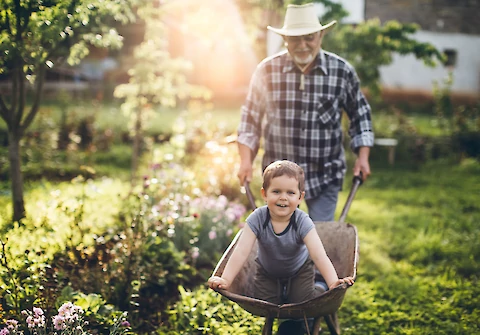
As we enjoy the sun's warm embrace while doing outdoor activities, we need to remember the importance of sun safety, especially for seniors. Protecting aging skin from sun damage is a vital part of maintaining overall health and well-being. Let's explore the age-related risk factors of sun exposure and how seniors can enjoy the great outdoors while keeping their skin safe and healthy.
Age-related Risk Factors
Our skin undergoes several changes as we age, which can make it more susceptible to sun damage. Firstly, aging skin becomes thinner, allowing harmful ultraviolet (UV) rays to penetrate more easily. This makes seniors more vulnerable to sunburns, which can cause long-term damage. Secondly, the production of melanin (the pigment that provides natural protection against UV rays) decreases with age. Lastly, the skin's ability to heal from sunburns declines as we grow older, increasing the risk of long-term effects.
Unfortunately, the long-term effects of sun damage on aging skin are not just cosmetic. Premature aging, such as wrinkles and age spots, can occur due to cumulative sun exposure. The risk of developing skin cancer increases as we age, as the skin's ability to repair DNA damage from the sun diminishes over time. Given these risks, seniors must prioritize sun safety and take preventive measures.
Many seniors are prescribed medications that can increase their sensitivity to sunlight. Be aware of these potential side effects and adjust sun exposure accordingly. Consult with a healthcare professional if you're unsure how your medications might affect your sun sensitivity.
Skin cancer is the most common cancer in the United States, making regular screenings for seniors even more important. Consult your healthcare professional for personalized advice on the frequency and types of screenings that are appropriate for you, and remain vigilant by checking your skin for any changes or irregularities.
Tips to Protect Senior Skin in the Sun
Wearing sunscreen with a high SPF value is crucial for everyone, but especially for seniors whose skin is more vulnerable to sun damage. Opt for a broad-spectrum sunscreen with an SPF of 30 or higher, and remember to reapply every two hours or more often if you're swimming or sweating.
Wearing protective clothing and hats can help shield aging skin from the sun's harmful rays. Wide-brimmed hats can provide excellent protection for the face, ears, and neck, while long-sleeved shirts and pants made from sun-protective fabric can cover larger areas of the body. Don't forget sunglasses to protect your eyes and the delicate skin around them from UV damage.
Seeking shade when possible and avoiding peak UV hours during the day should also be part of your sun safety strategy. UV rays are typically strongest between 10 a.m. and 4 p.m., so it's best to plan outdoor activities for early morning or late afternoon when the sun isn't as strong. Opt for shaded areas whenever possible to minimize direct sun exposure.
Need More Support Staying Safe This Summer?
By understanding the age-related factors and risks, being aware of medication side effects, and taking practical steps to protect the skin, seniors can continue to enjoy outdoor activities while minimizing the risk of sun damage.
For those in the Milford, Franklin, Stoughton, Webster, Foxboro, and Sharon areas, Senior Helpers Milford-Franklin is here to support your senior care needs. We can help protect senior skin from sun damage by assisting them in applying sunscreen, remembering to seek shade, or helping them dress in sun-appropriate clothing. Reach out to us for assistance and resources to help your loved ones live their best lives.